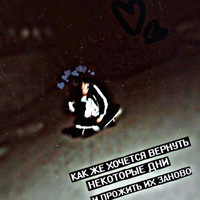
1.His favourite subject at school is … History. A - B a C the 2. Can your brother play … piano? A the B - C a 3. They started early in … morning. A - B the C a 4. Do you really believe … ghosts? A in B for C at 5. Who are you waiting …? A from B for C to 6. Would you like to be … doctor? A - B a C the 7. We generally … quite early during the week. A eating B are eating C eat 8. Focus ..... the big picture and not the details. A at B in C on 9. You will not need to worry ...... accommodation or food. A for B in C about 10. –Where is Mickie? - He … in the garden. A plays B playing C is playing 11. Ferdinand (just) … to Santa Monica. A return B had returned C has returned 12. My colleagues usually … four days a week, and this week they … five days. A work, are working B are working, are working C work, work 13. Why are you late? I … here four two hours. A waitedB have been waiting C will have been waiting 14. He looks angry. He … his wallet. A has been loosing B has lost C lost 15. It … outside; 1 do not like to walk in such weather. A rains B is rain C is raining 16. When I saw Mary last Sunday she was tired, she … a party the night before. A has been toB was to C had been to 17. A. Christie … detective stories. A has written B wrote C had written 18. This time next week, I … on the beach. A will be lying B am lying C be lying . If I … a million dollars, I would buy a house. A will have B would have C had 20. Flowers die if you … water them.
Ответы на вопрос

His favourite subject at school is … History. (B -)
Explanation: "History" is a subject, so no article is needed.Can your brother play … piano? (A the)
Explanation: Musical instruments usually take the article "the."They started early in … morning. (B the)
Explanation: "Morning" here is a specific time period, so "the" is used.Do you really believe … ghosts? (A in)
Explanation: The correct preposition with "believe" in this context is "in."Who are you waiting …? (B for)
Explanation: The correct preposition with "waiting" in this context is "for."Would you like to be … doctor? (B a)
Explanation: "A" is used here because "doctor" is a singular countable noun referring to one profession.We generally … quite early during the week. (C eat)
Explanation: "Eat" is used because it expresses a habitual action.Focus … the big picture and not the details. (C on)
Explanation: The correct preposition with "focus" in this context is "on."You will not need to worry … accommodation or food. (C about)
Explanation: The correct preposition with "worry" is "about."–Where is Mickie? - He … in the garden. (C is playing)
Explanation: "Is playing" indicates an action happening at the moment.Ferdinand (just) … to Santa Monica. (C has returned)
Explanation: "Has returned" is used for an action that happened recently with relevance to the present.My colleagues usually … four days a week, and this week they … five days. (A work, are working)
Explanation: The first verb, "work," is in the present simple to indicate a habitual action, while "are working" describes a temporary change in the schedule.Why are you late? I … here for two hours. (B have been waiting)
Explanation: "Have been waiting" indicates an action that started in the past and is still ongoing.He looks angry. He … his wallet. (B has lost)
Explanation: "Has lost" describes a recent event with a visible effect in the present.It … outside; I do not like to walk in such weather. (C is raining)
Explanation: "Is raining" is present continuous, indicating an action happening right now.When I saw Mary last Sunday she was tired, she … a party the night before. (C had been to)
Explanation: "Had been to" is used here to describe an event that happened before another past event.A. Christie … detective stories. (B wrote)
Explanation: "Wrote" is used because Agatha Christie is no longer alive, so her works are completed in the past.This time next week, I … on the beach. (A will be lying)
Explanation: "Will be lying" expresses a future continuous action.If I … a million dollars, I would buy a house. (C had)
Explanation: The correct form is "had" for this type of second conditional sentence.Flowers die if you … water them. (B don’t)
Похожие вопросы









Топ вопросов за вчера в категории Английский язык









Последние заданные вопросы в категории Английский язык





-
Математика
-
Литература
-
Алгебра
-
Русский язык
-
Геометрия
-
Английский язык
-
Химия
-
Физика
-
Биология
-
Другие предметы
-
История
-
Обществознание
-
Окружающий мир
-
География
-
Українська мова
-
Информатика
-
Українська література
-
Қазақ тiлi
-
Экономика
-
Музыка
-
Право
-
Беларуская мова
-
Французский язык
-
Немецкий язык
-
МХК
-
ОБЖ
-
Психология
-
Физкультура и спорт
-
Астрономия
-
Кыргыз тили
-
Оʻzbek tili











